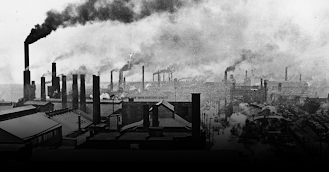The Privilege of Technopessimism
The Industrial Revolution has created an unprecedented trend in the development of Human society, every second that passes, the world develops, new technologies arise, and the net effectiveness of the Human species increases. We are on an exponentially rising trajectory of advancement. Generally speaking, today, is the greatest day in human history, the day when the most people are living best. Of course, there are issues with today's world, there is still death, and exploitation, and poverty, but as a whole, the Human Species is improving, standards of living are better than they were 100 years ago, we live longer, we know more, and we have vaccines and modern medicines.
Historically speaking, this state of perpetual advancement is the outlier in terms of societies, as civilisations rose and fell, their innovations and technologies were often lost. Individuals lived in the shadows of their ancestors, tales of whose societies became legendary. Only since the industrial revolution, has rapid and continuous societal advancement become the norm, today, we expect our children to have far better lives than we have, just like how our lives are far better than that of our parents. It is not just a high standard of living that is expected, it is a rapidly improving one.
When technological advancement becomes the status quo, there will be, of course, those who oppose it, simply for opposition's sake. In recent years, the technological paradigm of the modern day has led to the rise of an anti-technological, or technopessimist perspective among many individuals and groups. The belief that technology will not, or often has not, led to an improvement in human life. That future technological advancement will rater wholesale decrease the standard of living across human society.
It is easy for theorists to make this claim from their comfortable armchairs, but it is difficult to follow this logic. While, yes, technological advancement can allow exploitation, destruction, and death, across history this is far from the norm, innovation continuously improves Human livelihoods. The truth is, in a world where humans in the Western World have very few immediate mortal needs, it is easy to take a negative view on the hardships we do endure, and to imagine a past in which these problems did not exist, no dept, no employment contracts and no mortgage repayments.
This is perhaps an insight into how empathy can often be difficult for humans. Just as we find it difficult to see the hardships of our neighbour, we also perhaps cannot empathise with the members of a past society, or lack thereof. Thus, we can romanticise a simpler life before our time, before technology changed our lives so greatly.
I would argue that this view is counter to the functioning of our society, if individuals cannot accept that the advancements made by our institutions has improved our lives, this creates a fundamental distrust of any organisation that advances society. This is, of course, not to discount a healthy skepticism of innovation, but to warn against a wholesale rejection of advancement.
In the end, it could perhaps be said that an anti-technological outlook reflects a position of privilege, our society has advanced so profoundly and so quickly, that it is easy to trivialise the past, and to ignore the miseries that modern technology has all but eradicated. It is from this theoretical standpoint that arises a wholesale rejection of future development, a "what have the Romans ever done for us?" fallacy, as it were.
To conclude, given the rapid and sustained development of postindustrial society, it is perhaps inevitable that a large technopessimist movement would form. However, this absolute refutal of technology as a general trend is, I believe, harmful to the development of humankind which has so greatly improved the life of the mean human. Of course, every technology has created problems within society, yet the rejection of the backbone of our entire society is formed from a greatly privileged perspective. Perhaps this is an achievement as a society, that industrial technologies have advanced so greatly, that individuals no longer must spend all of their mental energy on keeping themselves alive, and therefore can instead spend their time yearning for an imagined past.





Comments
Post a Comment